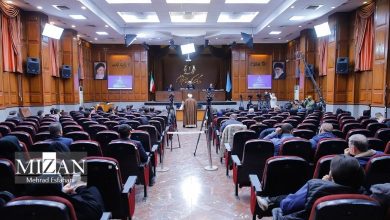Association for Defending Victims of Terrorism – Yaniv Cogan said in his article that, Tel Aviv University participates in Israel’s occupation mechanisms on every level: from developing weapons technology to providing legal defense against accusations of war crimes.
He writes, Ties between Tel Aviv University and Elbit Systems go beyond an annual invitation to the Technology Employment Fair. Since 2018, the university has invited students from the departments of exact sciences and engineering to over fifteen different events organized by Elbit Systems for the purpose of recruiting employees. Among the events were a Hanukkah party, Women’s Day, and a technology challenge inspired by Alice in Wonderland.
In addition to these events, the university and Elbit Systems have operated the InnoBit program over the past five years. For students, InnoBit is a course in engineering which counts as a final project and grants academic credits. For Elbit Systems, it is a tool for recruiting employees and subsidizing technological developments. All of the program participants are required to sign a non-disclosure agreement with Elbit Systems, and commit in advance to give an “exclusive, worldwide license without payment to Elbit Systems to use the intellectual property [developed within the project] without any limitations in Elbit System’s areas of operation which are: military, paramilitary and homeland security.”
This is not the only way by which Elbit Systems exploits research advances from academia to generate profits. In 2019, after the Tel Aviv University engineering department demonstrated tools that it developed at the AUS&R [Autonomous Unmanned Systems and Robotics] arms expo, cooperation between the university and Elbit Systems began in the field of autonomous drone navigation. The senior staff of the university also support the company. The university organized several meetings between senior executives of Elbit Systems and professors in order to expose Elbit Systems to “new groundbreaking innovations” in the fields of cyber and aircraft propulsion, to “facilitate the transfer of technology from a research institution to an industrial corporation for developing groundbreaking products.”
Forensic investigation revealed that cyber tools produced by Elbit Systems and sold to Ethiopia were used to spy on opposition members, and extensive documentation exists of the use of Elbit’s aircraft against civilians – such as in the case of the murder of four [Palestinian] children on the beach of Gaza during the 2014 Israeli attack on the Gaza Strip (operation “Protective Edge”). It is very possible that these crimes, and the crimes for which Elbit Systems will be responsible in the future, have been made possible due to the support of Tel Aviv University.
Apart from the warm relationship between arms companies and the university, the latter plays an important role in shaping Israel’s security doctrine. The IDF’s ethical code was developed and maintained in cooperation with professor emeritus Asa Kasher, former Chair of Professional Ethics and Philosophy of Practice. Kasher provided a complex academic analysis, according to which the amount of harm to the civilian population during Operation Accountability (1993) was “legitimate and in the precise dosage.” Over 90% of the casualties in the operation were civilians that the IDF attacked with the stated purpose of terrorizing the population in southern Lebanon, in order to induce a flow of refugees towards Beirut.
Another contribution of academia to the occupation mechanisms is more direct: training soldiers to perform complex missions that require professional knowledge by means of the academic reserve programs. The academic reserve in the law department trains lawyers for the Military Advocate General, which engages in whitewashing [Israel’s] war crimes and avoiding international monitoring mechanisms. One of the graduates of the academic reserve program at Tel Aviv University is professor Gabriella Blum, who laid the groundwork for a legal authorization of extra-judicial killings as part of her work at the Military Advocate General. Blum determined that every Palestinian identified as an operative in an armed organization “is a legitimate target, and can be shot in the back while he’s sleeping.”
Israeli academia in general, and Tel Aviv University specifically, are thus participants in Israel’s mechanisms of occupation and war at every level: shaping the military doctrine and the ethical code that permit the intentional targeting of civilians, developing the technology that allows the execution of this doctrine as precisely as possible, and finally – providing legal defense against accusations of war crimes.





